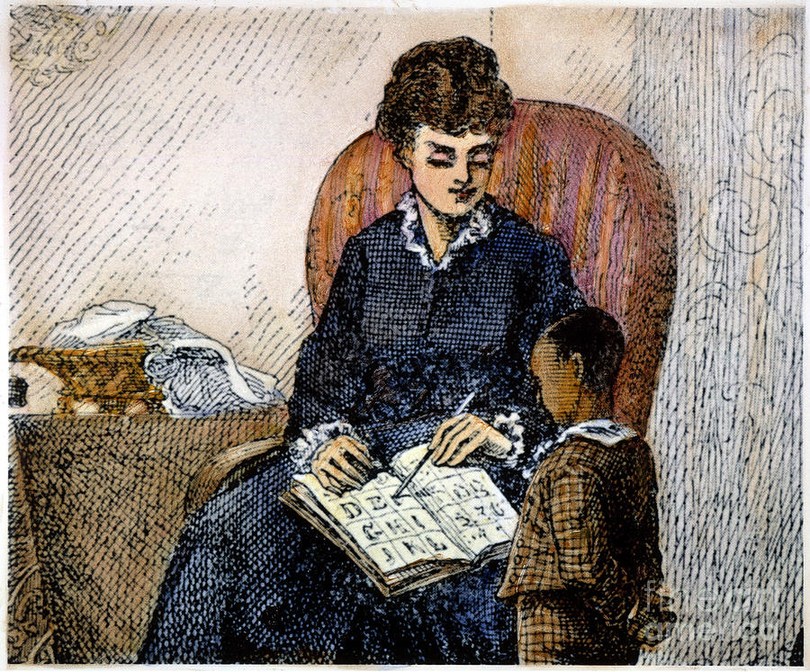 In Federick Douglass's autobiography, My Bondage and My Freedom, there was once a "kind and tender" relationship between Douglass and his slave mistress. His slave mistress, whom taught him how to read and write, thought fondly of him and was kind enough to give him an education. But, her persona changed once she was commanded to stop educating Douglass and start treating like what he is, a slave. Mrs. Auld, his mistress, learned how to hate and despise Douglass; she treated him as an inferior. Mrs. Auld even grew to hate Douglass more than her husband; her innocence transpired to an extreme hate. Douglass conveys this by using rhetorical devices such as antithesis. For example, in order to reason the fact that Mrs. Auld drastically changed, he states, " Nature made us friends; slavery made us enemies (pg. 526)." Douglass also states, "Nature has done almost nothing to prepare men and women to be either slaves or slaveholders. nothing but rigid training, long persisted in, can perfect the character pf the one or the other. one cannot easily forget to love freedom; and it us as hard to cease respect that natural love in our fellow creatures (page 522)."Another examples of a rhetorical device Douglass used was a simile in order to compare his situation with achieving self-education, "I have had her rush at me, with the at most fury, and snatch from my hand such newspaper or book, with something of the wrath and consternation which a traitor might be supposed to feel on being discovered in a plot by some dangerous spy (523)." All in all, Douglass argues that although Mrs. Auld was once nice and affectionate, the circumstances made her into a bitter, hateful women.
In Federick Douglass's autobiography, My Bondage and My Freedom, there was once a "kind and tender" relationship between Douglass and his slave mistress. His slave mistress, whom taught him how to read and write, thought fondly of him and was kind enough to give him an education. But, her persona changed once she was commanded to stop educating Douglass and start treating like what he is, a slave. Mrs. Auld, his mistress, learned how to hate and despise Douglass; she treated him as an inferior. Mrs. Auld even grew to hate Douglass more than her husband; her innocence transpired to an extreme hate. Douglass conveys this by using rhetorical devices such as antithesis. For example, in order to reason the fact that Mrs. Auld drastically changed, he states, " Nature made us friends; slavery made us enemies (pg. 526)." Douglass also states, "Nature has done almost nothing to prepare men and women to be either slaves or slaveholders. nothing but rigid training, long persisted in, can perfect the character pf the one or the other. one cannot easily forget to love freedom; and it us as hard to cease respect that natural love in our fellow creatures (page 522)."Another examples of a rhetorical device Douglass used was a simile in order to compare his situation with achieving self-education, "I have had her rush at me, with the at most fury, and snatch from my hand such newspaper or book, with something of the wrath and consternation which a traitor might be supposed to feel on being discovered in a plot by some dangerous spy (523)." All in all, Douglass argues that although Mrs. Auld was once nice and affectionate, the circumstances made her into a bitter, hateful women.
❤❤❤Guadalupe Cervantes
No comments:
Post a Comment